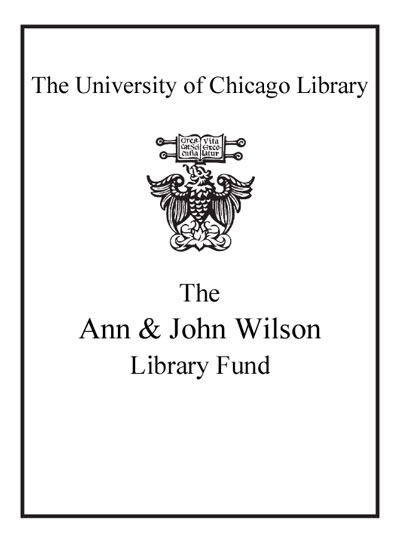Shahnama studies. 1 /
Saved in:
| Imprint: | Cambridge : University of Cambridge, Centre for Middle Eastern and Islamic Studies, 2006. |
|---|---|
| Description: | xxvi, 300 p., [56] p. of plates : ill. (some col.) ; 26 cm. |
| Language: | English |
| Series: | Pembroke papers ; v. 5 Pembroke papers (Cambridge, England : 2006) |
| Subject: | |
| Format: | Print Book |
| URL for this record: | http://pi.lib.uchicago.edu/1001/cat/bib/9964625 |
| Summary: | The first volume in the series Studies in Persian Cultural History is the edited volume based on the papers from the Second Shahnama round-table, held in 2003 in Cambridge and published by Charles Melville in 2006 (The Centre of Middle Eastern and Islamic Studies, University of Cambridge).The Shahnama, or Book of Kings, by the Persian poet Firdausi (completed in 1010 A.D.) is a verse epic that narrates the history of the Iranian people from the earliest times to the collapse of the Persian Empire in the early seventh century. Based on orally-transmitted legends and written sources now lost, Firdausis lifetimes work retells the myths and legends of ancient Iran, interweaving stories of the successive dynasties and Shahs from the first king, Kayumars, down to the last ill-fated Sasanian monarch, Yazdagird III (murdered by a miller in the Merv oasis), with accounts of combats with monstrous beasts, hunting exploits and gargantuan feasting. The poem recounts the first ordering of society under Jamshid, with the domestication of animals and the learning of crafts, the glory and hubris of the Shahs tempted by their power to indulge in acts of tyranny and folly, the strained relations between the rulers and their cahmpions, the introduction of Zoroastrianism, the legendary conquests of Alexander the Great, and finally the contest between Persia and byzantium for dominion in the Middle East. The Shahnama is a defining work of Persian literature, providing multi-layered paradigms of Irans experience of monarchical rule, of her relations with her neighbours to East and West, and of the traditional values of civilised society. Although the arbitrary and often cruel workings of Fate frequently determine the cuorse of events, Firdausi persistently urges his heroes to take responsibility for their actions, guided by the twin virtues of justices and wisdom.This volume brings together a collection of papers exploring many different aspects of the Shahnama, both as literature and as the object of royal patronage. It focuses particularly on the manuscripts in which the poem has been preserved from the thirteenth century onwards, and the relationships between Firdausis text and the rich variety of the miniature paintings created to illustrate it. |
|---|---|
| Item Description: | Papers from a round table held in Cambridge, 2003. |
| Physical Description: | xxvi, 300 p., [56] p. of plates : ill. (some col.) ; 26 cm. |
| Bibliography: | Includes bibliographical references and index. |
| ISBN: | 9780951644324 0951644327 0951644319 9780951644317 |

